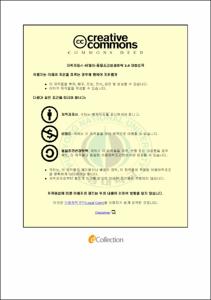제 7차 교육과정 및 2007 개정 교육과정에 의한 공업화학 교과서의 STS 내용 비교 분석
- Abstract
- Comparative analysis of STS contents
in the industrial chemistry textbook of the 7th and the 2007 revised curriculum
Kim, Rak-Hyun
Graduate school of Education
Pukyong National University
Abstract
Recently, STS education movement is a main trend of world-wide science education, which has specified that goal for science education is transferred from training scientists to teaching science for all. Hereupon, the purpose of this study is to look over industrial chemistry textbook that chemical engineering students should learn compulsorily in high schools specialized with chemistry, and as a result of it, to analyze how much and in what way the STS education is included in the textbook as well as is coincident with the goal of 7th curriculum.
The analysis shows that STS education content inclusion was as low as 4.65% in the textbook of the 7th curriculum in comparison with 20% inclusion high school recommended. Revised textbook in 2007 also included similar rate of 4.48%.
In addition the result of analyzing STS structural elements suggested by Yager reveals that in 7th curriculum the most frequently used element was ‘evaluation concerned for getting and using information’ followed by ‘applications of science’, ‘social problems and issues’, multiple dimensions of science’, and ‘local and community relevance’, meanwhile in revised textbook the element was in order as follows: ‘applications of science’, ‘social problems and issues’, ‘evaluation concerned for getting and using information’, ‘local and community relevance’. ‘Practice with decision-making strategies’ and ‘career awareness’ were not included.
And the result of analyzing Piel’s STS topic fields from the 7thcurriculum shows that most frequently used element was ‘environmental quality & natural resource’, ‘effect of technical development’, ‘human engineering’, ‘energy’, ‘space research & national defense’, and ‘sociology of science’. Revised textbook shows in order as follows: ‘environmental quality & natural resource’, ‘human engineering’, ‘effect of technical development’, and ‘energy’. Both of two textbooks were absolutely lack of sociological subject of science such as ‘space research & national defense’, and ‘sociology of science’.
The analysis results of distribution by SATIS activity reveals that both textbooks were focused on ‘data analysis’ and ‘investigation study’, on the contrary, various activities such as ‘structured debate’, ‘problem solving & decision making’, and ‘role play’ seemed to be rare.
- Issued Date
- 2012
- Awarded Date
- 2012. 2
- Type
- Dissertation
- Keyword
- STS
- Publisher
- 부경대학교 교육대학원
- Department
- 교육대학원 화학교육전공
- Advisor
- 김영일
- Table Of Contents
- Abstract
I. 서 론 1
1. 연구의 목적와 필요성 1
2. 연구내용 2
Ⅱ. 이론적 배경 4
1. 우리나라 과학과 교육과정의 흐름 4
2. STS와 STS 교육의 의미 8
3. STS 교육의 대두 배경 12
4. STS 교육의 목적 13
5. STS 교육의 특징 18
6. STS 프로그램 22
7. 제7차 및 개정 2007 교육과정 중 공업화학 과목 해설 28
Ⅲ. 연구 내용 및 방법 33
1. 연구 자료 33
2. 분석 기준 33
3. 분석 방법 36
Ⅳ. 연구 결과 및 논의 38
1. 교과서별 STS 내용의 지면수 비교 38
2. 교과서별 STS 구성요소 분포 비교 40
3. 교과서별 STS 주제영역 비교 분석 42
4. 교과서별 STS 교수-학습 활동 영역비교 분석 45
Ⅴ. 결론 및 제언 47
참고문헌
- Degree
- Master
- Files in This Item:
-
-
Download
 제 7차 교육과정 및 2007 개정 교육과정에 의한 공업화학 교과서의 STS 내용 비교 분석.pdf
기타 데이터 / 791.02 kB / Adobe PDF
제 7차 교육과정 및 2007 개정 교육과정에 의한 공업화학 교과서의 STS 내용 비교 분석.pdf
기타 데이터 / 791.02 kB / Adobe PDF
-
Items in Repository are protected by copyright, with all rights reserved, unless otherwise indicated.